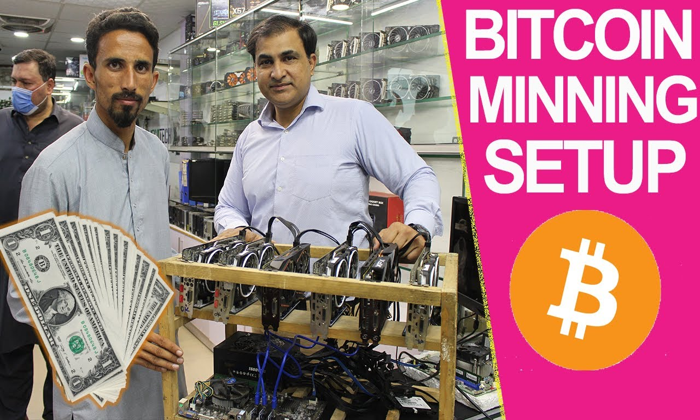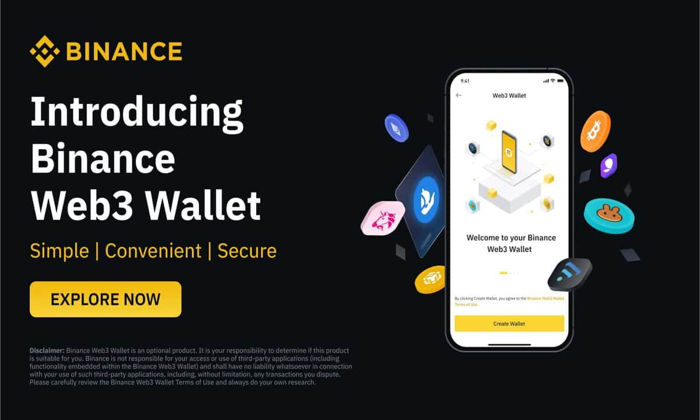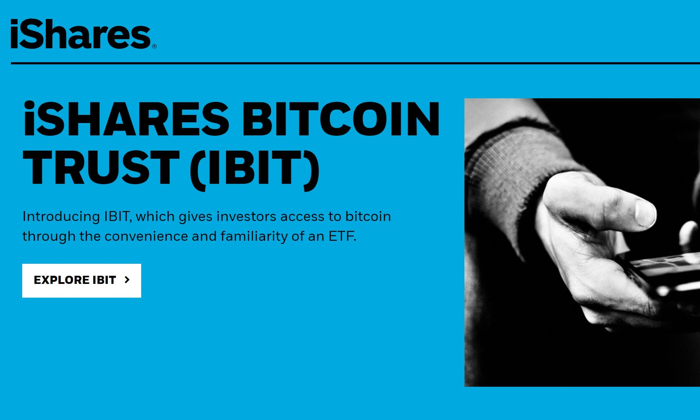The Solana ETF has become a focal point in the evolving landscape of cryptocurrency investment products, reflecting the increasing interest in decentralized finance. Recently, the SEC announced a significant delay in its review of the Bitwise and 21Shares Solana ETF applications, raising questions about the regulatory path for these innovative financial instruments. Amid growing market concerns, the SEC is seeking further public input to ensure investor protection and prevent market manipulation before granting approval. As the agency assesses these proposals, the anticipation around Solana ETFs highlights their potential to expand the accessibility of Solana-related investments. In a market eager for crypto ETF approval, this delay indicates both challenges and opportunities for investors looking to capitalize on Solana’s promising technology.
The ongoing discourse around Solana-based exchange-traded funds (ETFs) emphasizes a pivotal moment for digital asset investment vehicles. The Securities and Exchange Commission’s hesitation regarding the Bitwise and 21Shares applications not only underscores the complex regulatory environment but also reflects the growing demand for funds tied to assets like Solana. As investors increasingly seek diversified portfolios that include crypto assets, the establishment of Solana investment products could redefine market engagement. With debates surrounding investor security and market stability at the forefront, the future of such ETFs remains a hot topic among financial analysts and enthusiasts alike. Ultimately, the fate of these crypto-linked funds will significantly impact the landscape of digital finance.
Impact of SEC Delays on Solana ETF Applications
The SEC’s delay in making a decision on the Bitwise and 21Shares Solana ETF applications has sent ripples through the market, raising questions about the future of crypto investment products. As both firms await feedback from the SEC, there is a growing frustration among investors who are eager to capitalize on the potential of Solana as a leading digital asset. Delays in regulatory approvals not only affect investor sentiment but can also hinder the overall growth of the Solana ecosystem, which has gained significant traction over recent months.
Consequently, this standoff has led to wider discussions about the regulatory landscape for cryptocurrency ETFs as a whole. The SEC’s concerns about market manipulation and investor protection remain central to their deliberation process. Understanding these factors is critical for potential investors who are looking into Solana investment products, as any persistent delays could result in missed opportunities within the rapidly evolving digital asset market.
The Role of Public Consultation in Solana ETF Decisions
The SEC’s recent decision to open public consultation regarding the Bitwise and 21Shares Solana ETF applications highlights the importance of stakeholder input in regulatory processes. This move is seen as a step towards transparency, allowing voices from various sectors—including analysts, investors, and industry leaders—to be heard. Public consultation may gather valuable insights that could influence the SEC’s final verdict on whether these proposed Solana ETFs align with key regulatory standards.
Moreover, public engagement can help the SEC assess the broader sentiment around Solana and its unique market dynamics compared to other cryptocurrencies. With many crypto investors advocating for the approval of a Solana ETF, the collective input could potentially address the SEC’s doubts surrounding investor protection and fraud prevention protocols. Ultimately, successful participation in these public discussions may pave the way for the approval of Solana investment products, ushering in a new era of accessible crypto investment.
Analyzing Market Sentiment Towards Solana ETFs
Market sentiment regarding the approval of Solana ETFs remains cautiously optimistic despite the SEC delays. Analysts like James Seyffart and Eric Balchunas project a high likelihood of approval for most crypto ETF applications, including Solana and Litecoin. Such predictions suggest that, while the waiting period may be long, there is robust institutional interest in these assets. Factors such as favorable commodity classifications bolster this optimism, attracting more investment into the Solana ecosystem.
Investor enthusiasm continues to build, with many expecting that once the SEC provides clarity on its approval stance, demand for Solana ETFs will surge. The current delay may be frustrating, but the promise of increased liquidity and exposure to Solana’s technology has investors hopeful. As discussions and favorable predictions circulate, the market remains vigilant, tracking each development closely while anticipating regulatory changes that could introduce Solana ETFs to US markets.
Challenges Facing Solana ETFs in the Regulatory Landscape
The regulatory landscape for cryptocurrency ETFs presents a unique set of challenges, particularly for innovative assets like Solana. The SEC’s ongoing scrutiny of market manipulation risks underscores the complexities surrounding the approval process. With the agency’s focus on protecting investors and maintaining market integrity, Solana ETFs must demonstrate robust compliance with existing regulations to gain approval, which poses a significant challenge for fund managers.
Additionally, the competitive nature of the cryptocurrency space means that Solana must continually vie for attention against established assets like Bitcoin and Ethereum. These well-known cryptocurrencies have already secured approval for ETFs, which places Solana at a disadvantage as it seeks to carve its niche in the market. Navigating these regulatory hurdles while demonstrating Solana’s unique value proposition will be crucial for the success of upcoming ETF applications.
Comparing Solana ETFs with Other Crypto ETFs
When considering the potential approval of Solana ETFs, it’s essential to compare them with other crypto ETF applications that have already made progress through the SEC. Both the Bitwise and 21Shares proposals stand out as significant contenders in a market that includes other established ETFs for Bitcoin and Ethereum. Understanding how these existing ETFs met regulatory requirements can provide crucial insights into helping Solana achieve a similar fate.
Furthermore, it is important to highlight the differences that set Solana apart from these other assets. With its faster transaction times and lower fees, Solana presents a compelling case for investors seeking alternatives to Ethereum-based products. By drawing on these unique selling points, advocates for Solana ETFs can better articulate their value proposition to the SEC and in turn, strengthen their applications.
Future Outlook for Solana ETFs and Market Trends
The future outlook for Solana ETFs rests on a delicate balance of regulatory approval and market readiness. Observers of the SEC’s decision-making dynamics suggest that while optimism for approval is warranted, potential investors should prepare for protracted waiting periods. With the broader trend of increased institutional interest in crypto investment products, the approval of Solana ETFs could align with the likely increased adoption of digital assets by mainstream investors.
Moreover, as market conditions evolve and public sentiment shifts, it will be integral for Solana to leverage industry developments to demonstrate its value as an investment product. Should the SEC eventually grant approval, Solana would finally have the chance to enhance its market presence and further foster innovation. The anticipation surrounding Solana ETFs embodies the high hopes for the future of digital asset investment in a transforming financial landscape.
The Importance of Investor Education in Crypto ETFs
As the interest in Solana ETFs and other cryptocurrency investment products expands, the role of investor education becomes increasingly critical. Many potential investors may lack a comprehensive understanding of the complexities and risks associated with crypto ETFs. Engaging educational initiatives that clarify the workings of Solana and its ETF applications can empower investors to make informed decisions and encourage confidence in crypto markets.
In addition, educational resources can also provide clarity on regulatory processes, including the role of the SEC in approving new fund structures. By fostering a better grasp of these mechanisms, investors will be more equipped to contribute meaningfully to public consultations, thus influencing the outcome of applications like those for Solana ETFs. With greater knowledge, the market can expect to evolve toward a more informed and confident investor base.
The Role of Institutional Interest in Solana ETFs
Institutional interest is a pivotal factor in the future success of Solana ETFs. As various firms have begun to allocate resources toward exploring investment opportunities in Solana, their participation in the market not only validates the asset’s potential but also signals to the SEC a growing acceptance among sophisticated investors. This institutional backing can create a favorable environment for the approval of Solana investment products.
Moreover, institutional investors often bring liquidity and stability to crypto markets, which can help alleviate some of the SEC’s concerns regarding market manipulation. As these entities advocate for regulatory clarity and seek entry into the burgeoning crypto ETF space, their influence can be a considerable asset in accelerating the approval timeline for Solana ETFs. Ultimately, institutional interest could serve as a game-changer in paving the path for Solana’s embrace by mainstream investors and markets.
Monitoring the Broader Crypto ETF Landscape
Monitoring the broader crypto ETF landscape is essential for stakeholders interested in the fate of Solana ETFs. The SEC’s recent actions on other cryptocurrency funds can serve as indicators for the delays and prospects surrounding Solana’s applications. By analyzing the approval trajectories of similar products, investors can better gauge the potential timeline for regulatory decisions, providing insights into the chances of success for both Bitwise and 21Shares.
Additionally, shifts in regulatory attitudes, such as changes in the SEC’s stance toward crypto ETFs overall, can significantly influence the fate of Solana investment products. Keeping a close eye on these trends not only prepares investors for potential outcomes but also allows for strategic adjustments and proactive engagement in advocacy efforts to support the adoption of Solana as a mainstream investment vehicle.
Frequently Asked Questions
What is the current status of the SEC Solana ETF applications?
The SEC has delayed its decision on the Bitwise and 21Shares Solana ETF applications, indicating they need more time for public consultation and to assess compliance with investor protection standards.
Why has the SEC delayed the Bitwise and 21Shares Solana ETF proposals?
The SEC’s delay regarding the Bitwise and 21Shares Solana ETF applications is primarily due to concerns over market manipulation and a need for additional analysis to ensure investor safety before any ETF approval.
What does the delay in Solana ETF approval mean for investors?
The delay in Solana ETF approval suggests that investors may need to wait longer for access to crypto investment products linked to Solana, as the SEC seeks input to determine if the proposals meet regulatory standards.
What are the implications of the SEC’s review process for the Solana ETF?
The SEC’s review process for the Solana ETF applications reflects the agency’s cautious stance on approving crypto ETFs, emphasizing its commitment to preventing fraud and protecting investors.
Are there other companies applying for a Solana ETF besides Bitwise and 21Shares?
As of now, Bitwise and 21Shares are the primary firms with pending applications for Solana ETFs. There are no other prominent applications mentioned at this time.
What can we expect for the future of Solana investment products after the ETF delays?
While the delays may lead to extended waiting periods for Solana investment products, analysts are optimistic about eventual approval due to institutional interest and favorable market conditions.
How does the SEC’s decision on Solana ETFs affect the broader crypto ETF landscape?
The SEC’s decision on Solana ETFs is pivotal for the broader crypto ETF landscape, as it could influence future approvals and set a precedent for other digital asset ETFs in the market.
What are the potential benefits of a Solana ETF once approved?
Once approved, a Solana ETF could provide investors with easier access to Solana through traditional investment vehicles, enhancing market liquidity and attracting more institutional capital.
What factors could hinder the approval of the Solana ETFs?
Factors such as concerns over market manipulation, insufficient investor safeguards, and ongoing regulatory scrutiny could hinder the approval of the Solana ETFs by the SEC.
When might we see the first Solana ETF available in the market?
While there is optimism for approval in the second half of the year, market conditions and regulatory processes suggest that investors may have to wait until late 2025 for the first Solana ETF.
| Key Point | Details |
|---|---|
| SEC Decision Delay | The SEC has postponed its decision on Bitwise and 21Shares’ Solana ETF applications. |
| Public Consultation | The SEC has opened a public consultation to gather feedback addressing market concerns. |
| Market Manipulation Concerns | The SEC is considering concerns about market manipulation and investor protection before approving the ETFs. |
| Historical Applications | Both Bitwise and 21Shares have faced delays in their applications, with 21Shares already managing Bitcoin and Ethereum ETFs. |
| Cautious Approach | The SEC’s cautious approach indicates that approval for Solana ETFs may take longer compared to other assets. |
| Market Optimism | Despite delays, analysts predict a high likelihood of approval for many ETF applications in 2025. |
Summary
The Solana ETF is a hot topic in the cryptocurrency world as the SEC continues to deliberate on its approval. The delays surrounding the Bitwise and 21Shares Solana ETF applications highlight significant regulatory hurdles created by concerns regarding market manipulation and investor protection. Although optimism remains in the market regarding potential approval in the future, investors will need to remain patient, as the SEC may require extensive consultation and analysis before granting the green light.
The emerging landscape of cryptocurrency investments is now focusing on the Solana ETF, creating significant excitement among investors and analysts alike. Recently, the SEC announced delays in the approval process for the Bitwise Solana ETF and the 21Shares Solana ETF, stirring discussions about the future of crypto ETFs. As the SEC seeks public feedback to alleviate concerns around market manipulation and investor protection, the pathway for Solana investment products appears to be both promising and challenging. With key issues on the table, the approval of these crypto investment vehicles may redefine how Solana is integrated into mainstream finance. As the crypto ETF approval journey unfolds, stakeholders are eagerly anticipating how these developments might influence market dynamics and investor confidence in digital assets.
The topic of the Solana ETF has become increasingly prominent in the discussions surrounding digital asset investment strategies. With the SEC’s recent decisions causing a stir in the financial community, interest in asset management firms like Bitwise and 21Shares continues to grow. These entities are vying for approval to introduce innovative investment opportunities linked to the Solana blockchain, which is often celebrated for its scalability and efficiency. As regulatory conversations unfold regarding the approval of these cryptocurrency-based exchange-traded funds, potential investors are closely monitoring any updates. The implications of these approvals on the broader market could be substantial, paving the way for a new era of blockchain-related financial products.















